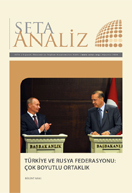Today is President Barack Obama's third day in the White House. I have no idea what he will be doing today or if he has figured out the layout of his home and office for the next four years; but I know that his task of meeting expectations is already weighing heavily on his shoulders.
On Jan. 20, 2009, Obama delivered one of the most powerful and elegant inauguration speeches ever. He delivered it with style and stunning force. He had millions with him on Capitol Hill and people watching TV coverage of the inauguration around the globe listened to his words. It was a speech not to provide content but to inspire and rejuvenate the American spirit. It provided the much needed self-confidence and energy to keep the promise of "Yes, we can" alive. But the problem is that President Obama said very little about what "change" will really mean under his rule.
Putting aside the poetic quality of his speech, which was exceptionally beautiful, Obama downscaled the Obama dream by getting "realistic." Given the enormous difficulties his presidency is taking over from Bush, he might be right in ringing the alarm bells rather than making new promises. But a downscaling of the Obama dream on day one means changing the meaning of change and runs the risk of acquiescing to the status quo. Obama has come to power at a time when American power and the international system are facing the risk of total collapse. As globalization runs its course and global problems become intertwined with everything else around the world, a redistribution of the global power balance is increasingly presenting itself as the most pressing issue for global peace and stability. In a scenario where the new Obama administration fails to face this challenge and follows a power-centered foreign policy, it will only deepen the frustration that has already swept across the globe under George W. Bush's policies. A key element in this new period is to question and redefine the "War on Terror." The Bush administration used the war as a context for new American expansionism through military means. The so-called Bush doctrine of unilateralism and nation-building by force has not only failed miserably, but also alienated all of America's allies in the Middle East and elsewhere. Furthermore, Bush's War on Terror has been used by the oppressive regimes in the Muslim world, all of which are also US allies, to deepen their autocratic regimes and clamp down on legitimate and democratic opposition. Roger Cohen was right when he warned in his International Herald Tribune op-ed (Jan. 11): "It's important for Obama to get his message right from day one. With Al Jazeera and Al Arabiya networks broadcasting 24-7 images of the carnage in Gaza, where there are more than 800 dead [now the number is 1,300], mobilization in the Arab world is intense. Rage against Israel, and behind it America, bodes ill." A Middle East policy defined solely through the prism of Bush's "War on Terror" doctrine will only invite further failure. The team Obama has selected so far for his Middle East and Muslim world policy does not suggest any fresh hope.I invite you to read a new brief on the Obama presidency by the Foundation for Political, Economic and Social Research (SETA) available at www.setav.org. The brief, entitled "The Obama Presidency: A View from Turkey," deals with key issues between Turkey and the US. The SETA brief argues for the development of a consistent regional perspective to improve US-Turkish relations. If Obama wants to listen carefully to the Muslim world, Turkey would be the right place to start.









